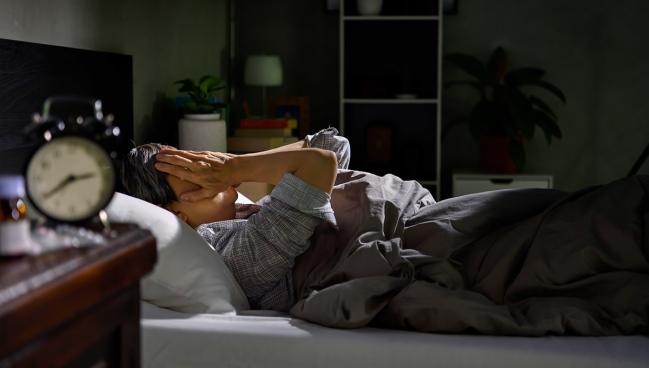Lack of Sleep Ups Hypertension Risk, Especially for Women
The mechanism at play is unclear, but that shouldn’t stop clinicians from urging healthy sleep habits, says Aayushi Sood.

People who sleep less than 7 hours per night are at increased risk for hypertension, especially women, according to a new meta-analysis. Sleeping for less than 5 hours upped this risk even further.
“The takeaway message from our results is the importance of adequate and consistent sleep duration in maintaining cardiovascular health, particularly in vulnerable populations,” lead author Aayushi Sood, MD (The Wright Center for Graduate Medical Education, Scranton, PA), told TCTMD in an email. “Clinicians can use these findings to counsel patients on the potential impact of sleep patterns on BP regulation and encourage healthy sleep habits as part of comprehensive preventive care.”
Sleep has become a focus for many cardiologists since it was added to the American Heart Association’s ‘Life’s Essential 8’ tool to define optimal cardiovascular health in 2022, yet some would argue it hasn’t been taken as seriously as it needs to be by many at-risk patients.
The mechanism linking sleep duration and hypertension highlighted in this study, which will be presented at the upcoming American College of Cardiology (ACC) 2024 Scientific Session, is “complex and involves various factors such as sympathetic nervous system activation, hormonal alterations, and disrupted circadian rhythms,” Sood said. This means there’s no “ideal” amount of sleep for everybody, but she advised people to get about 7-8 hours given the current evidence.
Less Sleep, More BP
For the meta-analysis, Sood and colleagues included data on more than 1 million people (61% female) from 16 hypertension studies conducted between 2000 and 2023 with follow-up stretching from 2.4 to 18 years.
Increased risk of hypertension was observed among those who slept less than 7 hours (HR 1.07; 95% CI 1.06-1.09), but was even stronger among those who slept less than 5 hours (HR 1.11; 95% CI 1.08-1.14).
Compared with men, women who slept less than 7 hours were at an increased risk for developing hypertension over time (HR 1.07; 95% CI 1.04-1.09). However, there were no differences observed in this regard related to patient age nor for study follow-up duration.
An analysis looking at people who slept longer than 8 hours also yielded no differenced related to hypertension risk.
Sood said she was “somewhat” surprised at what they found. “While prior studies hinted at a link between sleep duration and hypertension, our findings reinforced the importance of considering sleep patterns, especially in at-risk populations,” she said.
Even with the limitations of their study—including varying study methodologies and confounding factors like poor diet, physical inactivity, smoking, alcohol consumption, and psychological stressors—Sood stressed that “our findings contribute to the growing body of evidence highlighting the importance of sleep in cardiovascular health and emphasize the need for personalized approaches to managing hypertension based on individual sleep patterns and risk factors.”
She said she would like to see future research focus on the underlying mechanisms at play as well as “exploring interventions to improve sleep quality and duration and conducting longitudinal studies to assess the long-term impact of sleep patterns on cardiovascular outcomes.” Lastly, to further clarify the gender differences seen in their study, Sood said work looking deeper at the role of lifestyle factors and psychological stressors is also warranted.
Yael L. Maxwell is Senior Medical Journalist for TCTMD and Section Editor of TCTMD's Fellows Forum. She served as the inaugural…
Read Full BioSources
Sood A. Sleep duration and hypertension incidence: systematic review and meta-analysis. To be presented at: ACC 2024. Atlanta, GA.
Disclosures
- Sood reports no relevant conflicts of interest.





Comments